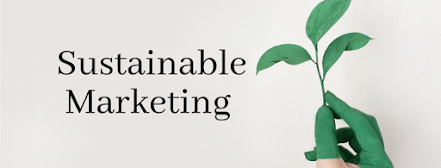What is sustainability? It's not what you think!
Its a System!
Can an enormous amount of avocado be damagingly unsustainable and right amount of polythenes be hugely sustainable?
Vegan almond milk is the cause of damage to the bee population with monoculture farming of soya. So, is almond milk sustainable or is burger really unsustainable?
For some, these might be two, unlike comparisons. But, THINK, prick your heads hard.
Sustainability is the new bandwagon, think beyond what brands and culture preach.
Sustainability is commercialised in our generation. We are changing our consumption habits. Businesses are adopting more sustainable solutions for our lifestyle, keeping up with the trend. Will this help? Maybe, in future. But, right now? NO.
The hard reality is living healthy doesn’t come at a cheap cost! A bowl of salad will cost thrice than a plate of roadside momos. Hence, living sustainable and healthy is something that not everyone can afford if we go by brands. Do you already agree with me? Wait, hear me out more!
The notion of sustainability is very personal these days, making it all the more complex.
Gospel truth here is, it is the system of a particular material, product or item that makes it sustainable. Sustainability is not about finding durable solutions merely that improves your lifestyle, rather understanding the judicious use. It is not about making sustainable fashion choices, rather informed choices on the usability of products.
Buying clothes excessively and then saying, "I am buying from a sustainable brand that is doing no harm to the environment", or wearing that polyester shirt for years that brands will term as unsustainable (even though it can be produced by the waste of oil) holds much prominence here. Your usability defines the sustainability and unsustainability of the product, material or a thing.
Buying way too many clothes made of sustainable products becomes unsustainable.
Also, individual object/ thing is never sustainable or unsustainable, it is the system with all things together that makes it sustainable or unsustainable. For example, plastic dabbas that we get from our online deliveries. There is one household that uses them in daily chores, whereas for another one, it is just trash that will go to garbage. In this case, the usage of plastic in the first household makes the plastic sustainable as they are using it regularly for storage and whatnot, and, in the second scenario, same plastic becomes unsustainable because it is being thrown out.
It is never an object or a material that is sustainable or otherwise, it is always a system we put them into.
Consuming vegan, cruelty-free products is a new Jazz!!! Buying 1000 of such products does not make you any better!!! Commercialism has a way of sweeping into our lives, understand the cause and effect of it. Buying 50 shoes, innumerable pants, having loads of clothes in your cupboard and then saying, "I am an environmentalist, living by sustainable choices and eating healthy" does not make sense to me. The polyester t-shirt that you wear every day before you sleep is much more sustainable than the cotton shirt that you wear just 4-5 times in months.
Again, branding is done in such a way that we feel a certain thing is good or bad for us.
Cotton, for that matter, is something that rots away very soon in comparison to chiffon or polyester, and we still feel it is a conscious choice to make. A cotton shirt worn for 10-20 times before it turns to waste, to a polyester shirt worn for 100-200 and is still standing the fate of time is much more sustainable.
Consumerism and marketing is new hype and is evolving, so is the notion of Sustainable Branding.
Branding is vicious. Businesses know that their images and financial incomes – are directly correlated with how environmentally and socially sustainable they are. They know that their brand’s existence may depend on changing the way they do business. A brand can be green, but it is not the brand that will define the sustainability of the thing, it is on you how you use it is something that will define it.





Comments
Post a Comment